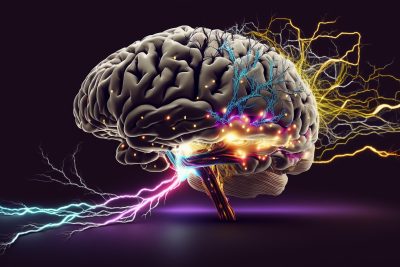A Brief Overview Full Article A traumatic brain injury (TBI) is an injury that affects how the brain works. TBI can affect people of all ages and backgrounds. The exact definition of TBI, according to special education law, is referenced later. This injury can change how the person thinks, behaves, and moves. A traumatic brain Read More
A Brief Overview Full Article With summer coming, some parents worry that a child’s progress at school might be erased by the break. Some families may also worry that their child is on the verge of acquiring a new skill and that progress will be disrupted by an extended break. Parents can request a meeting Read More
A Brief Overview Full Article Everyone has moments when they hear something and pause to wonder, Is that true? Parents/caregivers in meetings with their child’s school can feel particularly confused when something doesn’t sound right. They might wonder whether it’s appropriate to question school authorities. They might not understand all the words being spoken. Fear Read More
A Brief Overview Full Article When family members and school staff meet to discuss a student’s services, certain things have to happen. One requirement is for the school to take notes and share those notes with the family within a reasonable amount of time (usually a few days) after the meeting. Those notes are formatted Read More
A Brief Overview Full Article If a student eligible for special education services does not have a family caregiver, adoptive parent, or other legal guardian fulfilling the role of parent, then a surrogate parent is assigned to ensure the student’s rights are protected. The surrogate parent fulfills the family caregiver role on a student’s Individualized Read More
When a child has a disability, parents often learn that getting their child’s needs met requires persistence, organization, and advocacy. Advocacy is an action. A person is an advocate when they organize the work and press onward until a goal is achieved. Laws that protect the rights of students with disabilities also protect parents as Read More
A Brief Overview Full Article The Individuals with Disabilities Education Act (IDEA) is a federal law that was passed in 1990 and has been amended. The IDEA provides children with qualifying disabilities, from birth to age 21, with the right to services designed to meet their unique, individual needs. Eligible children ages 3-21 who receive Read More
Workshops and Webinars STOMP provides a range of learning opportunities tailored to military families, including virtual workshops spanning multiple days, two-day in-person workshops, and 90-minute webinars covering a variety of topics. Our goal is to strengthen connections and knowledge among military families. Some of the topics covered include Parents Rights and Responsibilities in Achieving Education Read More
A Brief Overview Full Article An ill-informed conversation about special education might go something like this: This conversation includes errors in understanding about what special education is, how it is delivered, and a student’s right to be included with general education peers whenever and wherever possible. This article intends to clear up confusion. An important Read More
A Brief Overview Section 504 is part of the Rehabilitation Act of 1973, which is upheld by the U.S. Department of Education’s Office for Civil Rights. Section 504 prohibits discrimination based on disability in any program or activity that receives federal funding. All Washington state public schools must comply with this federal law. Every student Read More
A Brief Overview Full Article Disability History and Awareness Month in October provides an opportunity for policy makers, teachers, families and people throughout communities to reflect on the disability rights movement. Equity and access are protected by law, yet there is still work to be done to ensure that laws are upheld and that everyone Read More
When a student has an Individualized Education Program (IEP), their IEP team is required to meet and review the program at least every year. The annual review date is listed on the cover page of the IEP document. Family caregivers can request additional meetings, and this article includes a sample letter families can use to Read More
An advocate is someone who works toward a cause or goal. Sometimes the hardest part of advocacy is figuring out what to do next. When a child has unmet needs at school, family advocates can seek changes to a student’s services by asking for an evaluation, a meeting, a behavioral assessment, or something else. Putting Read More
A Brief Overview At school, related services help children with disabilities benefit from their special education by providing extra help and support. Options for related services are described in state law (WAC 392-172A-01155). If a child with public health insurance needs specific therapies to meet medical needs, their insurance company is obligated to support those Read More
When a student struggles to maintain well-being, achievement at school can be a challenge. This video provides key information for families to seek school-based services for behavioral health needs. Included are two advocacy statements that this information might empower you to say in a meeting with the school: “I want to make sure my student’s Read More

